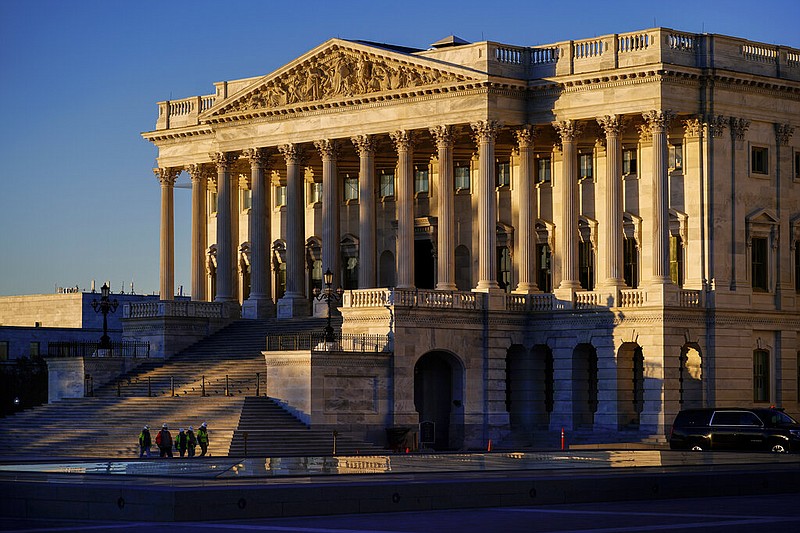WASHINGTON -- U.S. Rep. French Hill joined other congressional lawmakers to condemn a spate of bomb threats this year against historically Black colleges and universities.
The U.S. House Tuesday evening passed a resolution that denounced the threats and reaffirmed the commitment of the federal government "to combat violence against HBCU students, faculty, and staff."
Hill, a Little Rock Republican, is an original co-sponsor of the resolution and took to the House floor to urge support for the measure.
"Imagine being a student and learning your school has had a bomb threat. Imagine being a parent and learning that your child's school has had a bomb threat. It would be terrifying," he said on the floor. "These bombs threats are meant to invoke fear in our HBCU communities. This violence is unacceptable and it cannot become the norm for our historically Black colleges and universities."
The resolution noted that multiple HBCUs in Arkansas were targeted by bomb threats, including the University of Arkansas at Pine Bluff, Philander Smith College in Little Rock and Shorter College in North Little Rock, according to the bipartisan resolution.
The threats to Arkansas schools were part of a larger series of bomb threats against HBCUs in various states. The FBI says it's investigating the threats as violent extremism and hate crimes.
Days into the new year, at least eight HBCUs received bomb threats, including Howard University in Washington, D.C. and Spelman College in Georgia, according to the resolution.
HBCUs were the subject of another round of bomb threats on Feb. 1, the first day of Black History Month, according to the resolution.
Hill and U.S. Rep. Alma Adams, a North Carolina Democrat, are co-chairs of the congressional bipartisan HBCU caucus.
"I know HBCUs can overcome any challenge, but [those] challenges should not include terrorism or racism," Adams said on the House floor.
In Arkansas on Feb. 1, a caller claiming to be a neo-Nazi reported that he set explosive charges at Philander Smith College and another college nearby, which authorities believed to be Arkansas Baptist College, as well as a bomb in a vehicle at Shorter College, according to the police.
That same day, Philander Smith College reported on social media that the campus would temporarily move to remote instruction. The college also advised residential students to stay in their rooms.
Hours later, the college said on social media that operations would resume in person later that same day and that authorities had issued an "all-clear."
Roderick Smothers Sr., president of Philander Smith College, said Wednesday, the school has tightened security measures in a number of areas.
"I always say that while we're here to provide an education, that our first responsibility is to make sure we do that in a safe environment," Smothers said.
Philander Smith has been working closely with the Little Rock Police Department and the regional branch of the FBI, he said.
Smothers, who said officials from HBCUs have received briefings from the White House and the FBI on efforts to apprehend the suspects, added that locally they have been pleased with the process and support received from the FBI.
Passage of the bipartisan resolution came the same day a U.S. Justice Department official told a Senate panel that hate crimes are on the rise.
"Sadly, too many of the events that we see unfolding in our communities across the country today remind us that while we have made progress, racially motivated hate remains a stark problem in our nation," said Kristen Clarke, assistant attorney general for Civil Rights at the Department of Justice, at a committee hearing Tuesday.
Clarke spoke at a Senate Judiciary Committee meeting Tuesday and said the FBI has conducted outreach to the HBCUs.
In 2020, reported hate crimes rose to their highest levels in nearly two decades and the majority were motivated by race and ethnicity, she said. Countering white supremacy is a top priority in the civil rights division, she said.
